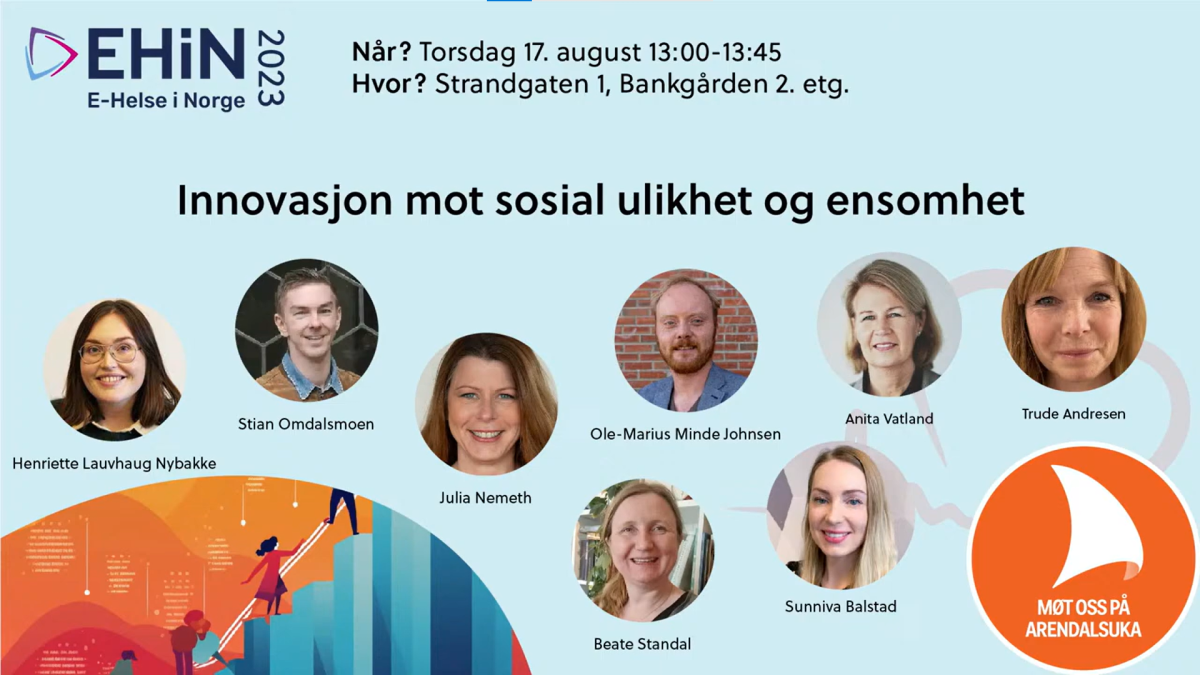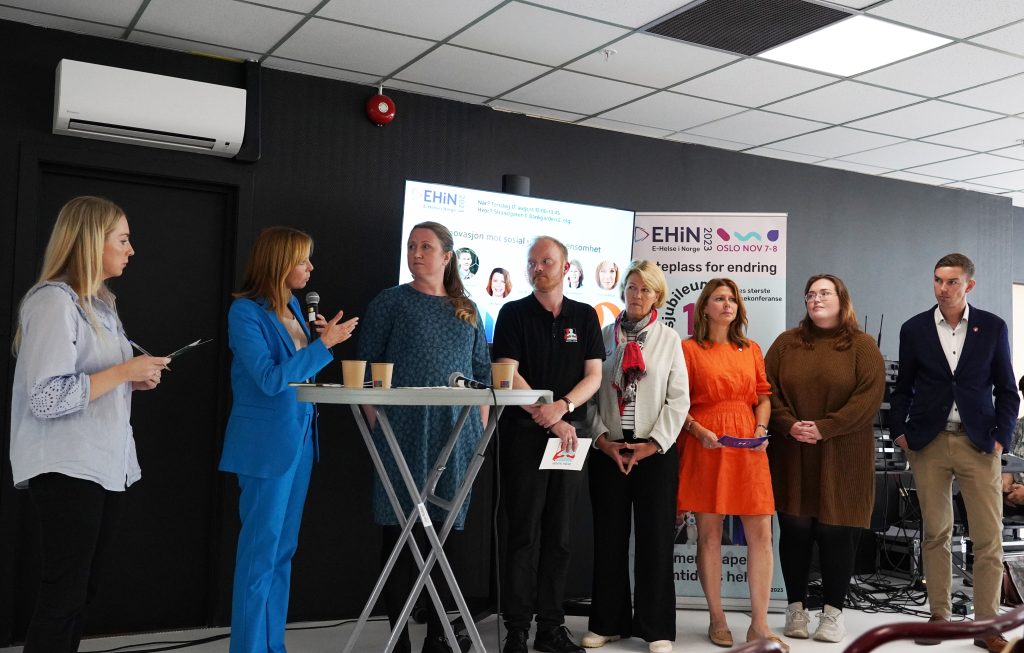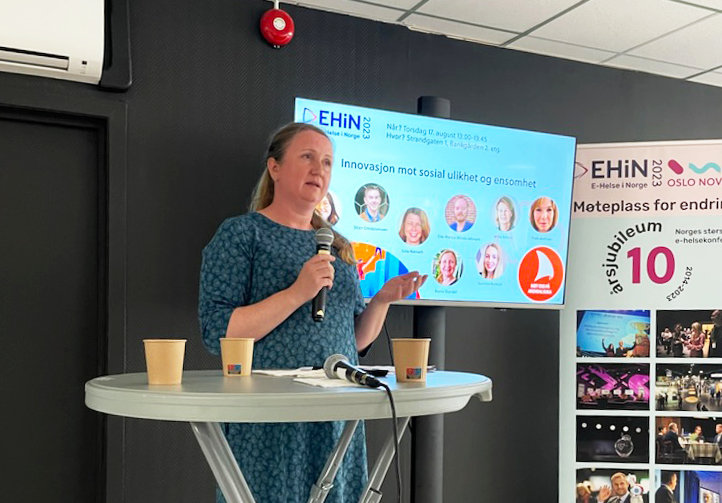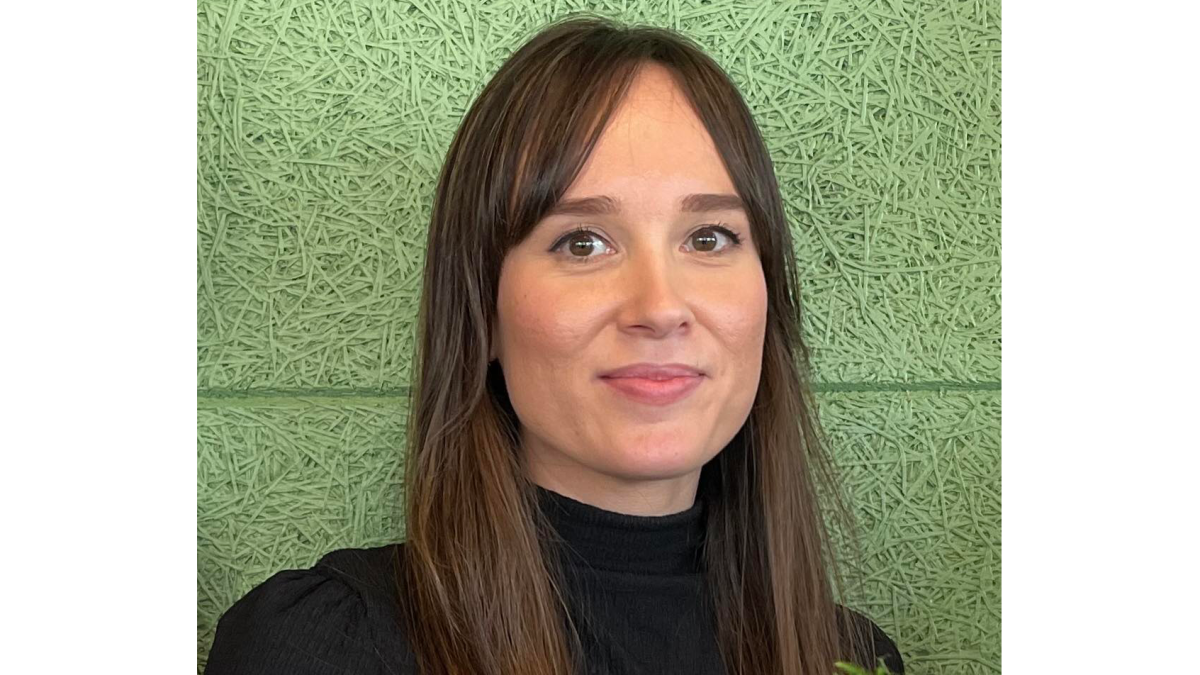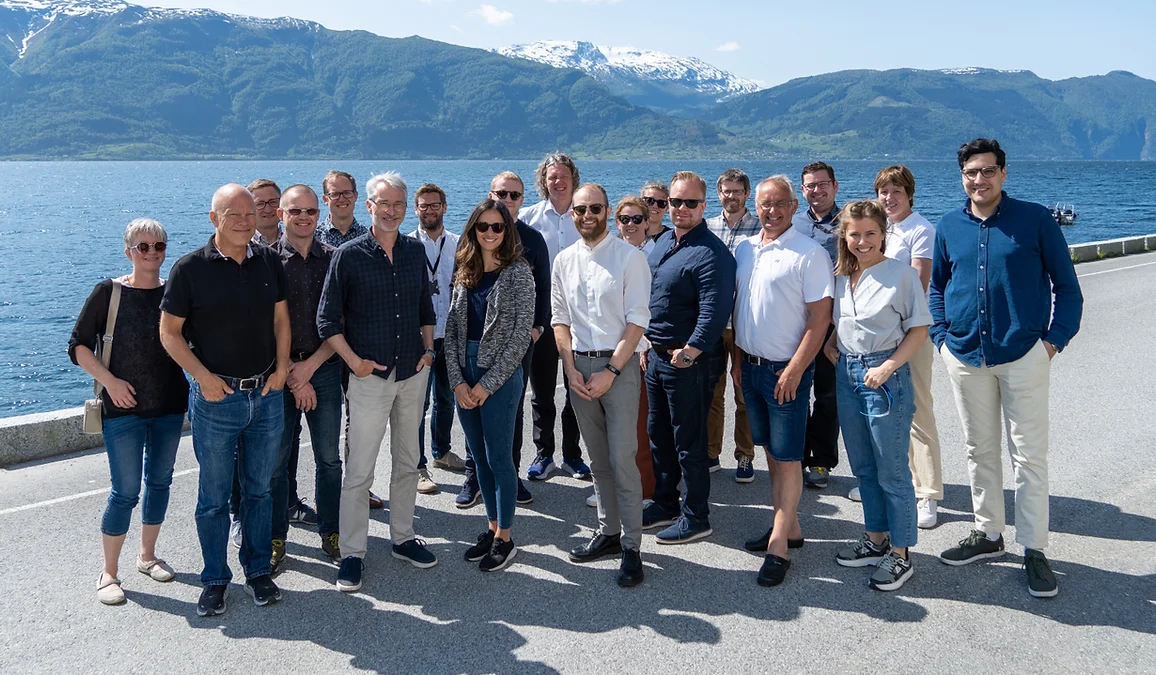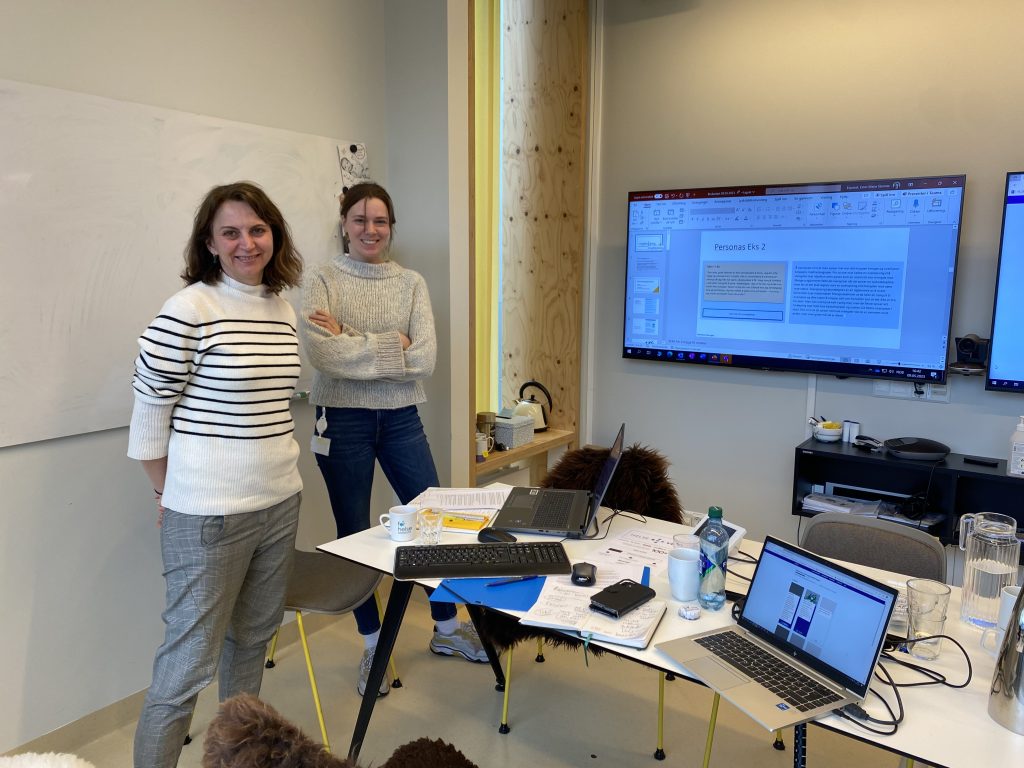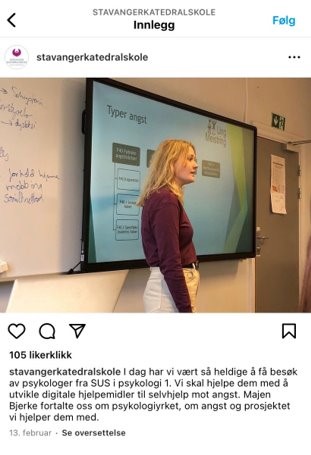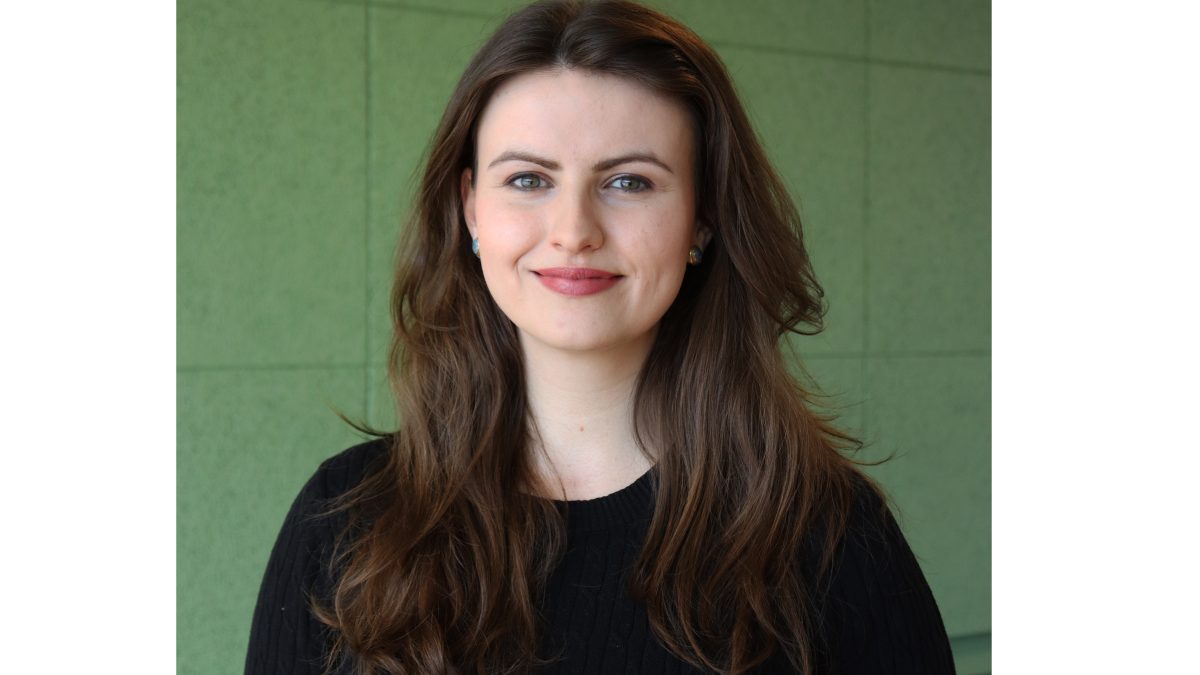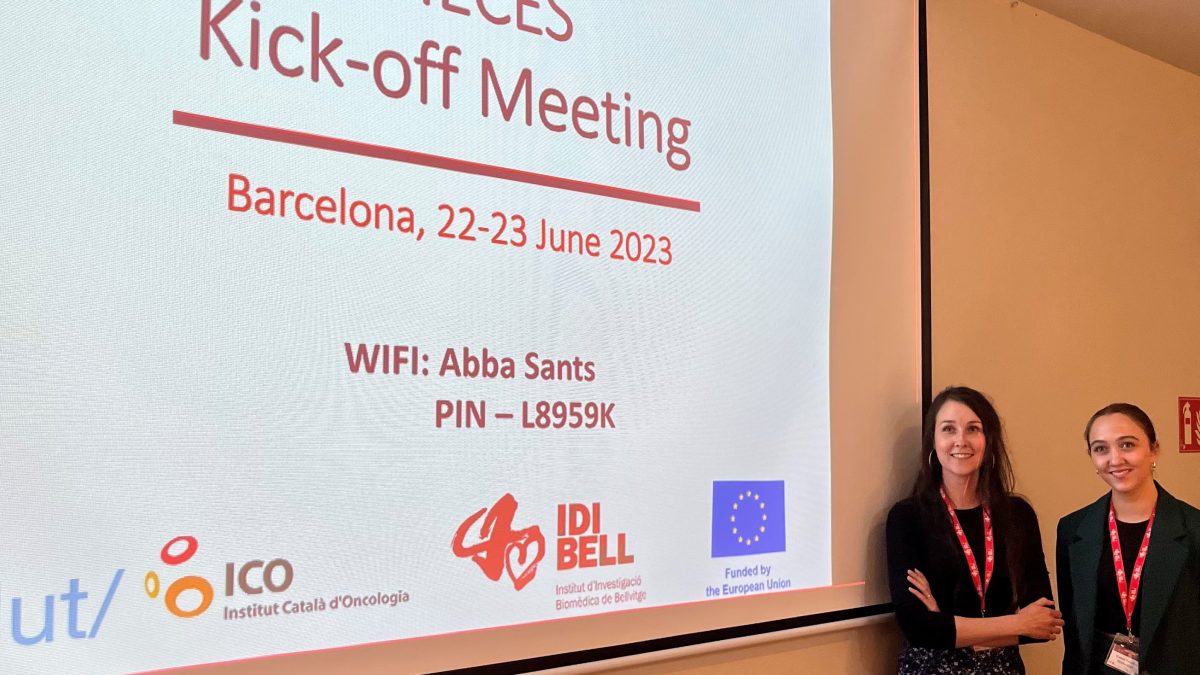The ESRII-conference 2023
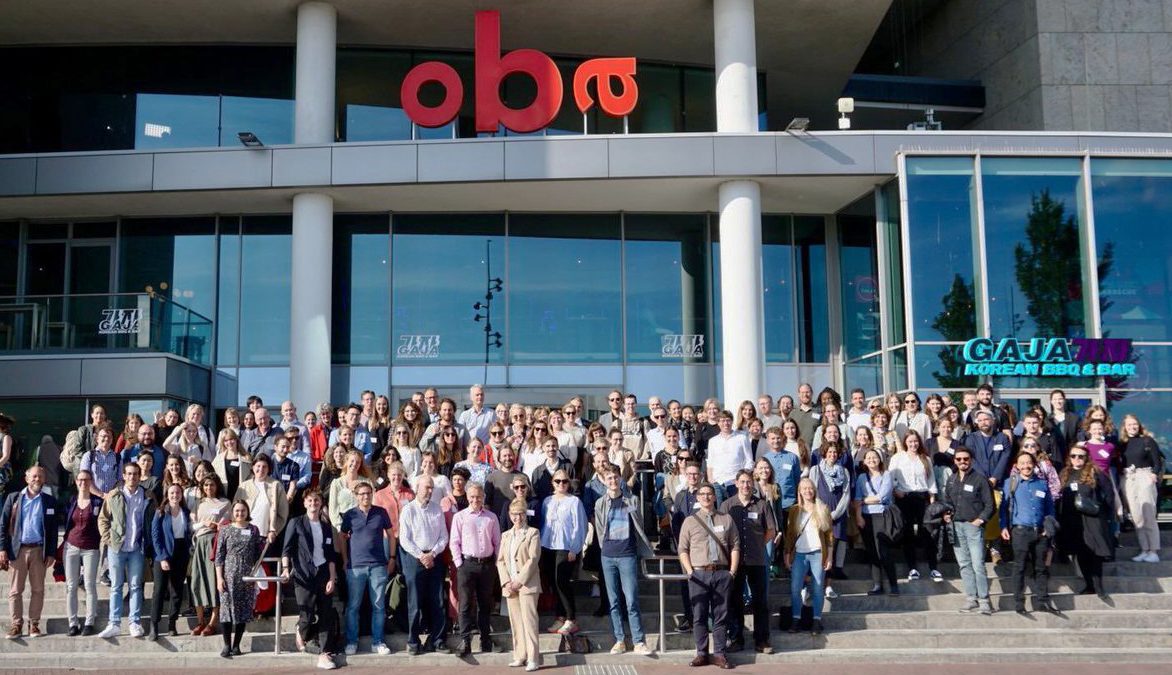
For the seventh time, the European Society Reasearch on Internet Interventions (ESRII) organizes a joint European conference 7th ESRII 2023 was held in Amsterdam on 31 August -1. September. UngMeistring and Forhelse participated broadly with both articles and posters.
In the beautiful surroundings of the library Openbare Bibliotheek Amsterdam (OBA), researchers gathered from all over Europe to be inspired, share experiences and network. This year’s theme was “United in Diversity”. ESRII is a conference with the aim of promoting evidence-based knowledge and research around Internet interventions with a focus on behavior and mental health. VU University Amsterdam, Faculty of Clinical Psychology hosted this year’s gathering. The conference presented 8 keynote lectures, 67 poster presentations and 19 parallel tracks with more than 80 different contributions.
From the researchcentre Forhelse participated:
- The PhD student in UngMeistring Guri-Elise Holgersen, with the poster: “A personalised digital treatment for adolescents with eating disorder – qualitative results and a pilot study protocol.”
- The PhD student in UngMeistring Maren Helene Rinke Storetvedt, with the poster “Young ADHD: A qualitative study with focus on adolescents´ needs, wishes and barriers related to ADHD and a digital intervention.”
- Post doc Smiti Kahlon with the Anxiety app Modi “Feasibility and preliminary clinical effects of a novel mobile application targeting anxiety in adolescents.”
- Henning Monsen from Solli DPS with the poster “eMeistring Health and Works. A feasibility study of a transdiagnostic treatment for people on sick-leave caused by common mental disorders.”
- The PhD student Beate Standal held a post titled: “Healthcare Workers’ Construction of the Patient: A Qualitative Study of the Use of Digital Mental Health Interventions in Specialized Mental Health Care.”
- Center leader at Forhelse Tine Nordgreen was among the key note speakers with the post: “Never sell the bear`s skin before someone has killed the beast.”
Some photos from the eventful days.
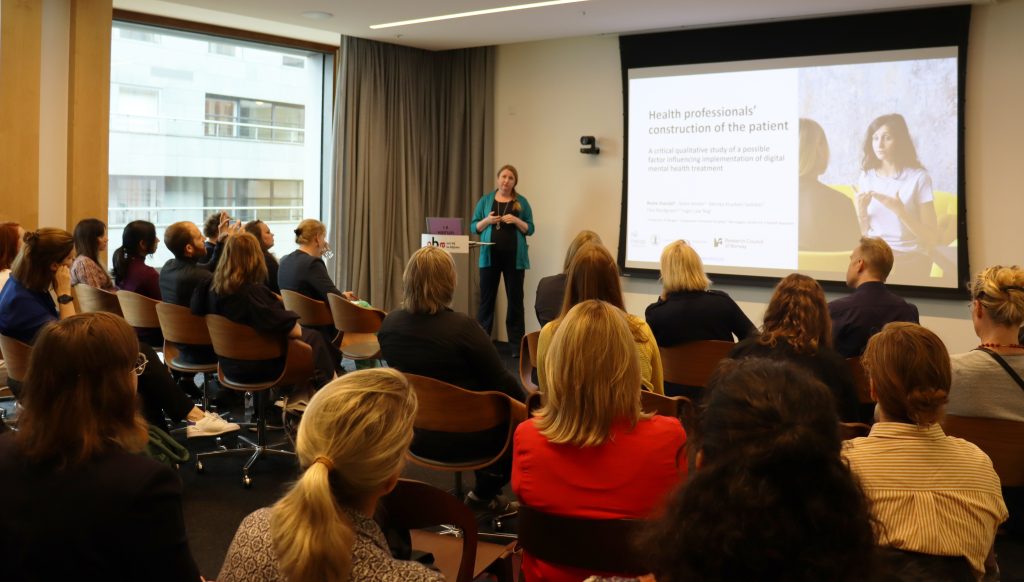
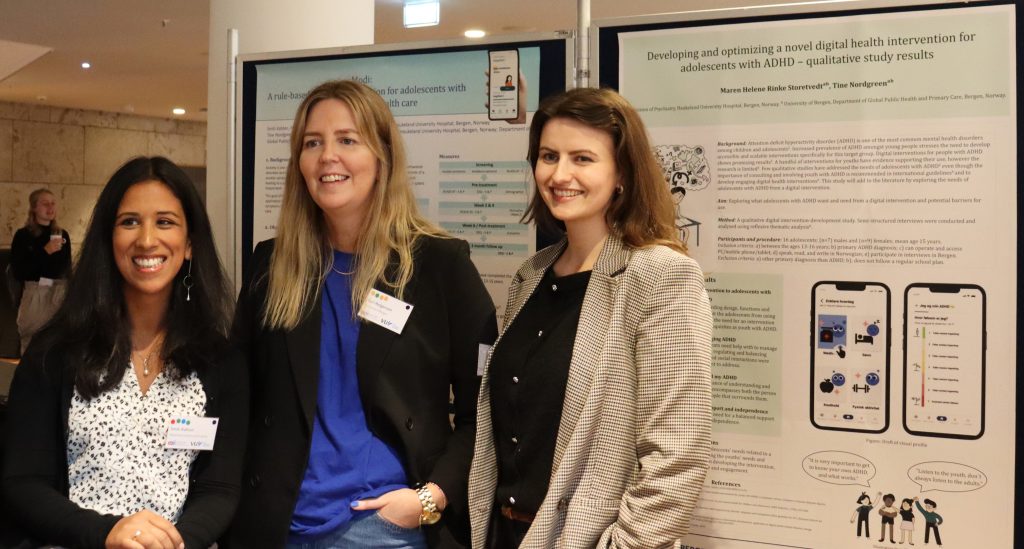
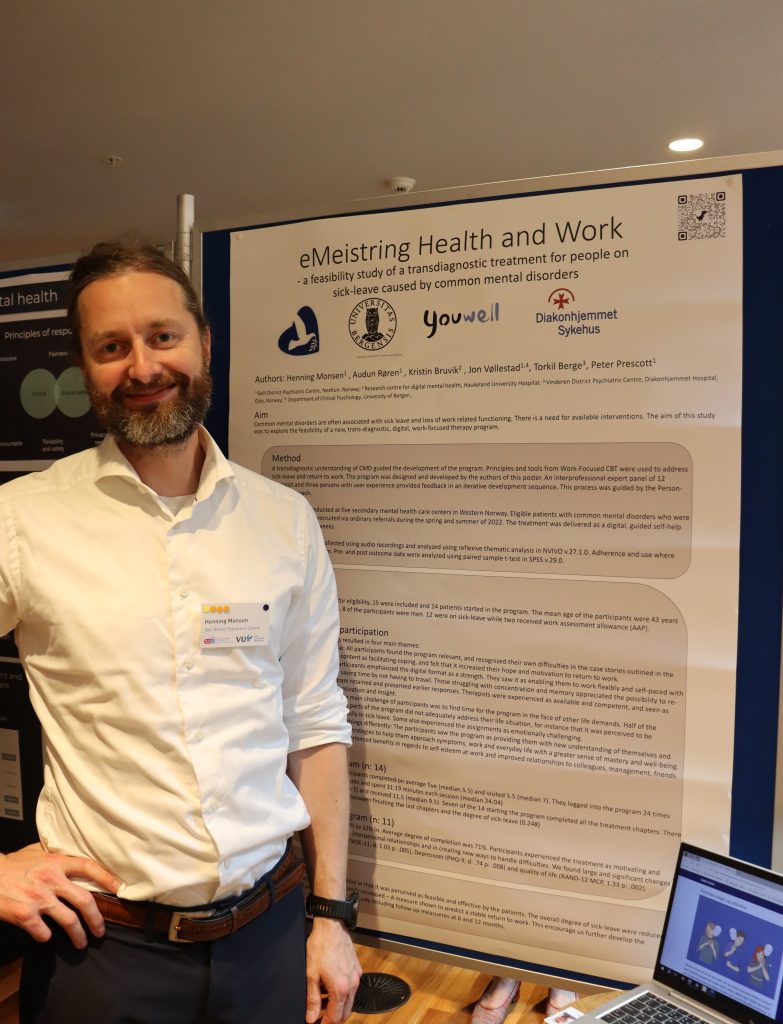
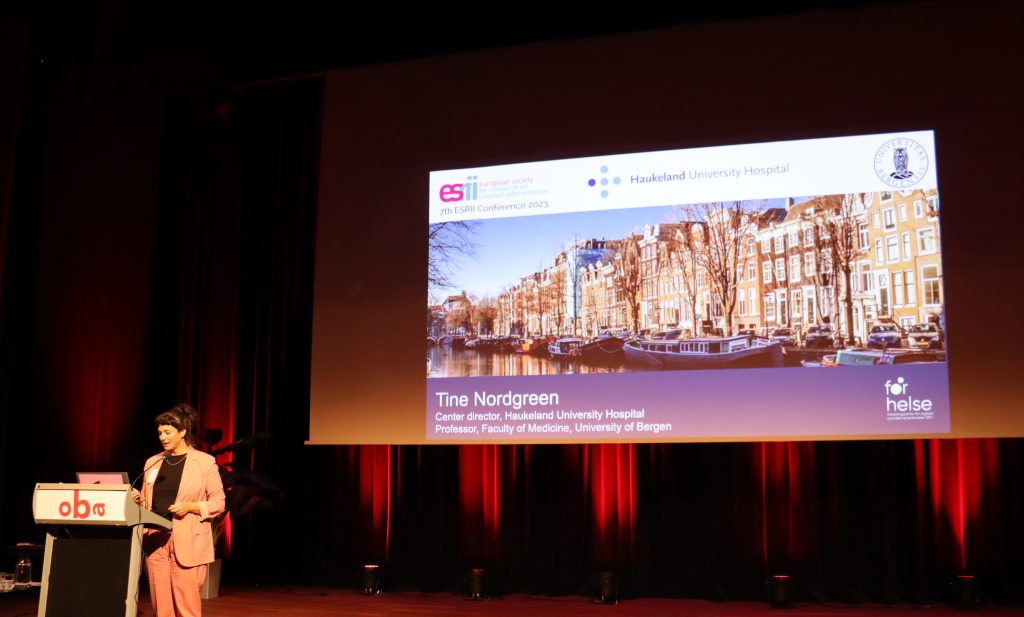
Thanks to ESRII for a great and inspiring conference!


